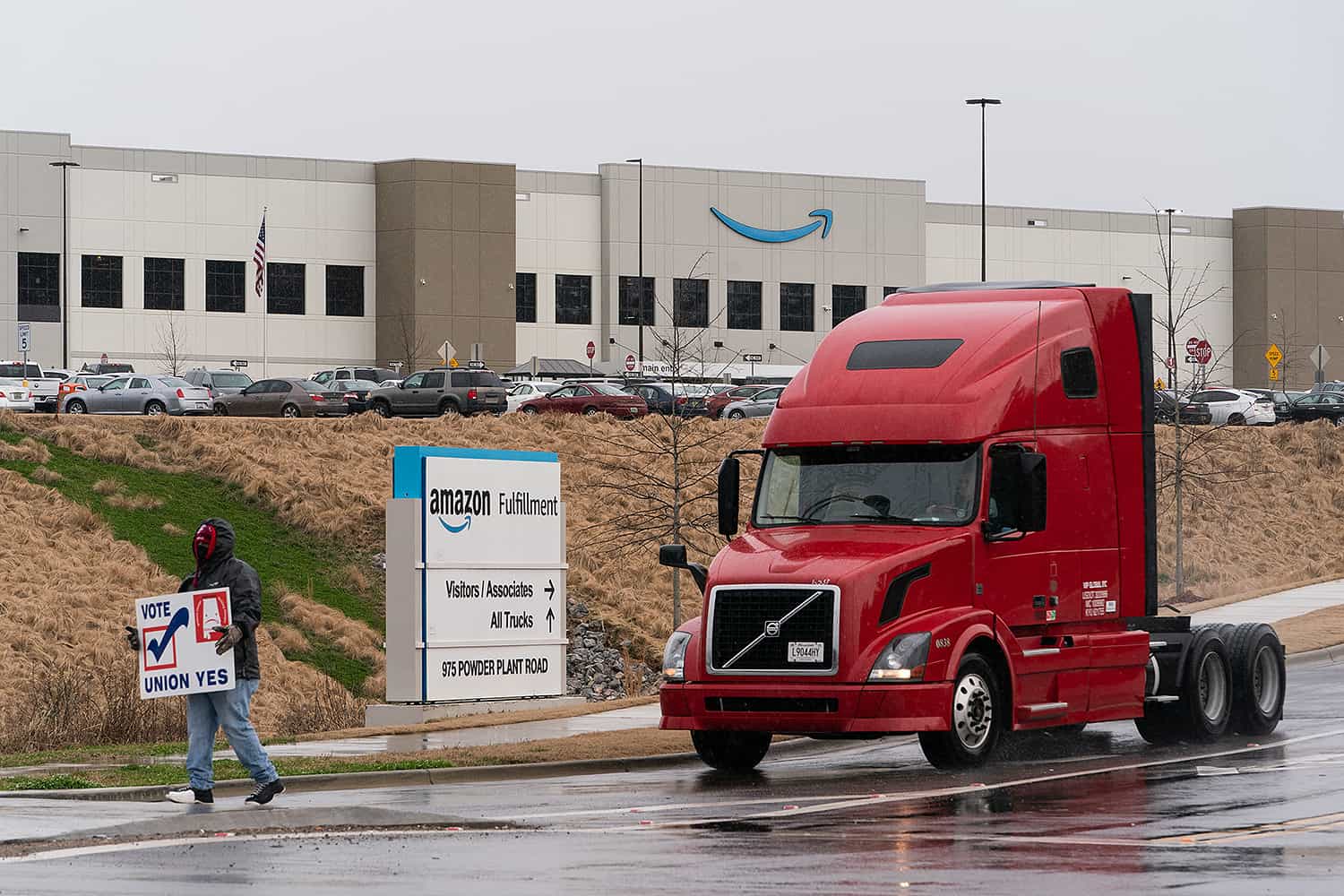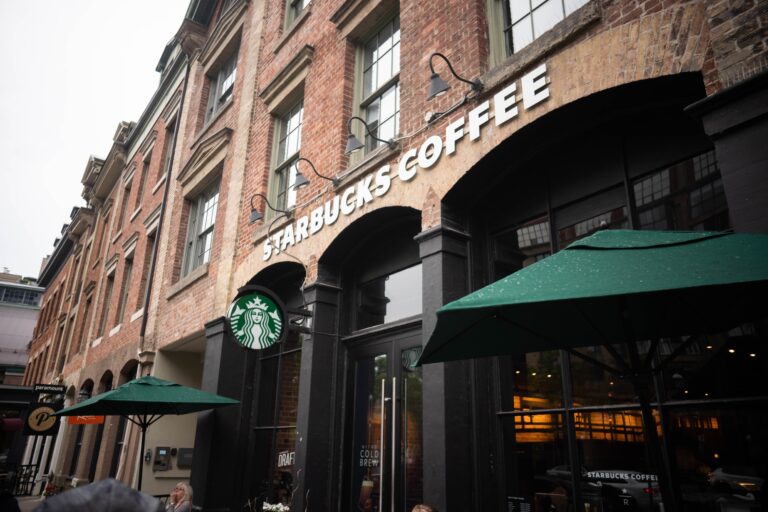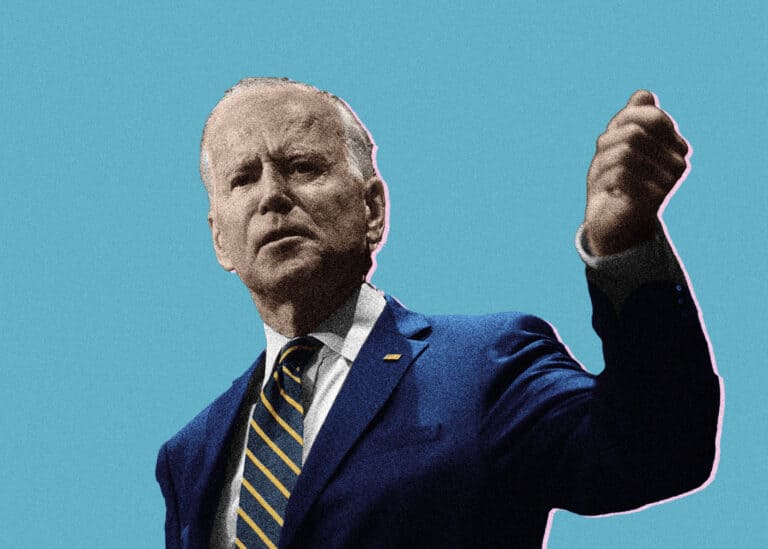
Kevin Vazquez is a staff attorney at the International Brotherhood of Teamsters. He graduated from Harvard Law School in 2023. The opinions he expresses on this blog are his own and should not be attributed to the IBT.
This post is the third of an ongoing OnLabor feature that will update readers on union developments at Amazon. Here are the first and the second.
As of Thursday evening — despite the $4.3 million that HuffPost reported the company spent on anti-union consultants last year — Amazon is on the precipice of becoming a unionized company (at least in one warehouse).
Two of the three concurrent union campaigns currently unfolding at Amazon — one in Staten Island and one in Bessemer, Alabama — began simultaneously tallying ballots on Thursday afternoon. In Alabama, where the Retail, Wholesale and Department Store Union (RWDSU) is at the helm, “no” votes led “yes” votes by 993 to 875 at the close of counting on Thursday. This means that the 416 contested ballots — set aside by the NLRB following challenges by both Amazon and RWDSU, to be counted only if necessary — will likely determine the outcome of the election. It is unclear how many ballots were challenged by RWDSU and how many were challenged by Amazon (although last year, Amazon challenged the bulk of the contested ballots). This process could take weeks, as both sides litigate which ballots should be included. The NLRB will hold a hearing to determine which, if any, of the challenged ballots should be opened, and both the union and the company will be able to file objections to the election’s process in the next several days, which could further delay proceedings.
Whatever the ultimate outcome, the vote in Bessemer appears to be much closer than the RWDSU’s first attempt last year, in which 1,798 workers voted “no” and 738 voted “yes,” a nearly 2–1 margin against the union. As things stand, the union is narrowly trailing the company, and the race is too close to call until contested ballots are counted. Moreover, according to the RWDSU, turnout decreased from last year, with only 39% of the workers in the bargaining unit returning ballots, down from over 50% in 2021. Lower turnout typically bodes well for the union — since “yes” voters are generally considered to be more mobilized and motivated to vote — but it is difficult to know whether that general principle holds true in this particular case. Even if the union loses, however — an outcome that is, as of now, far from certain — a narrower defeat, particularly in these circumstances, would still be an injection of momentum and morale into the arm of future Amazon organizing efforts.
In Staten Island, however, the Amazon Labor Union (ALU) appears poised for a historic and remarkable victory. As counting halted on Thursday, ALU led with 1,518 “yes” votes to 1,154 “no” votes. Of the 10 boxes containing ballots, six were opened and counted, and four remain. It is unclear precisely how many ballots are in the final four boxes — though most estimates peg the total number cast at around 3,500 – but there are at least several hundred left to tally. As things stand, ALU — a fledgling, upstart independent union whose chances of success were initially considered infinitesimal — appears on the precipice of becoming the first union to successfully organize Amazon workers, and the Staten Island warehouse, dubbed “JFK8,” will become the first unionized Amazon facility in North America. The impact that a union victory in an election as highly visible, contentious, and significant as this one will have on organized labor in the U.S. is immeasurable, and its effects will surely reverberate for years to come, to other Amazon facilities and beyond. It could very well prove a watershed moment for the American labor movement, and, especially when paired with the recent wave of successful Starbucks organizing sweeping the nation, it could precipitate a surge of union organizing in pivotal economic sectors, such as the service sector, in which unions have traditionally struggled to gain a meaningful foothold. It is difficult to overstate the potentially transformative consequences of renewed union strength in these industries, particularly among employers as large and powerful as Amazon and Starbucks.
In any event, the election is still not over, and the NLRB will resume tallying ballots on Friday at 9:30 a.m. EDT.










Daily News & Commentary
Start your day with our roundup of the latest labor developments. See all
January 19
Department of Education pauses wage garnishment; Valero Energy announces layoffs; Labor Department wins back wages for healthcare workers.
January 18
Met Museum workers unionize; a new report reveals a $0.76 average tip for gig workers in NYC; and U.S. workers receive the smallest share of capital since 1947.
January 16
The NLRB publishes its first decision since regaining a quorum; Minneapolis labor unions call for a general strike in response to the ICE killing of Renee Good; federal workers rally in DC to show support for the Protecting America’s Workforce Act.
January 15
New investigation into the Secretary of Labor; New Jersey bill to protect child content creators; NIOSH reinstates hundreds of employees.
January 14
The Supreme Court will not review its opt-in test in ADEA cases in an age discrimination and federal wage law violation case; the Fifth Circuit rules that a jury will determine whether Enterprise Products unfairly terminated a Black truck driver; and an employee at Berry Global Inc. will receive a trial after being fired for requesting medical leave for a disability-related injury.
January 13
15,000 New York City nurses go on strike; First Circuit rules against ferry employees challenging a COVID-19 vaccine mandate; New York lawmakers propose amendments to Trapped at Work Act.